How My Son’s Autism Changed Me
 Two years ago, we were told my son (then age 5) likely had autism. It came out of the blue, and I found myself thrown into a world that I had little understanding of. Sitting in the doctor’s room, I had no idea of the journey it would take me on or what a personal impact it would have on me.
Two years ago, we were told my son (then age 5) likely had autism. It came out of the blue, and I found myself thrown into a world that I had little understanding of. Sitting in the doctor’s room, I had no idea of the journey it would take me on or what a personal impact it would have on me.
I had been going through a tough time and felt like my life had become stuck, as I struggled with being a working mum. I had been seeing a life coach and just the month before we had done an exercise to imagine my future self, and I had made a list of the things to focus on. I was intent on becoming the person I had imagined myself to be.
Suddenly, I was focused on finding out more about autism, applying for an EHCP, battling the school, which wanted to exclude my son for challenging behaviour, and attending the many assessments required to get a diagnosis. It was hard to think about anything not linked to autism, and I quickly forgot all about my list. How could I think about my future self when there wasn’t even time to think about my present self?
My son is now in a much better place and life has become a little calmer. He has the right support in a new school and we understand more about his needs. Recently, I found my list and was amazed to realise that helping my son had helped me move closer to my future me, not further away.
I became connected. I met other parents through online forums and local support groups. Shared experiences and words of encouragement have helped me realise that I am not alone. Realising that many people are experiencing challenges that we don’t know about, I now take more time at work to see how the people around me are doing, rather than just focusing on the job. This has led to new friendships, and I feel more connected that ever before.
I learnt how to take a breath, slow down, and make time. At work and at home I found ways to do less, and started to use mindfulness to focus on the present rather than worry about the future or the past. This also means that I now try to just do the critical things that really need my attention, and have learnt how to say “no.” Funnily enough, I am now less stressed and am achieving a lot more with a lot less effort.
I started to give back. I shared my experiences in a blog, and now publish a weekly newsletter of blog posts and articles from other parents. This has allowed me to help other parents know that they are not alone, and to find answers to the many questions that they have. With an increased understanding of anxiety, I am a champion for mental health at work, and I have been able to help a number of people struggling with their own personal challenges. Helping others has allowed me to take some positives from our own experiences.
I stopped comparing. My family life is different to most of those around us, and I have accepted that there are many things that other families can do that we can’t. Before all this happened, I had been putting a lot of pressure on myself to be promoted, as all my peers had already made this step. I now know that their success is not my failure. We just have a different path. Mine is on a scenic route that is allowing me to learn so many other things that I wouldn’t have if I had got my promotion earlier on. Rather than focusing on the things we can’t do or haven’t happened, I try to celebrate the little moments and appreciate all the things that have happened.
Life has been tough, and we still have our tough times. However, I know that I have changed for the better as a result. In facing the many challenges, I have come unstuck and now understand that taking time out to connect with the people around me is the key to helping me move forward.



 I am a strong believer in Early Intervention for children diagnosed with autism and, in fact, any other condition that a child is diagnosed with that requires extra support.
I am a strong believer in Early Intervention for children diagnosed with autism and, in fact, any other condition that a child is diagnosed with that requires extra support.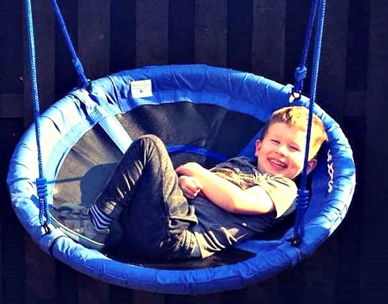
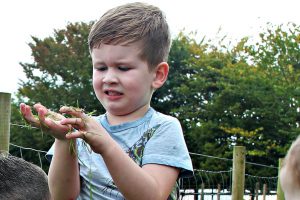 I never knew about sensory issues before having Brody. I wouldn’t have believed that a child could get so upset at the sight, touch, smell or sound of something — if that something wasn’t typically upsetting.
I never knew about sensory issues before having Brody. I wouldn’t have believed that a child could get so upset at the sight, touch, smell or sound of something — if that something wasn’t typically upsetting.
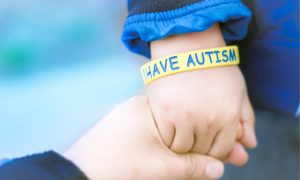 No one has a child hoping that they will have problems and difficulties in life – that would be absurd.
No one has a child hoping that they will have problems and difficulties in life – that would be absurd.
 I am a forgotten carer. I didn’t choose to be a carer and, if I am honest and I had a choice, it wasn’t on my list of dream jobs when I was younger. However, when you have a child or children with disabilities, you become a carer by default.
I am a forgotten carer. I didn’t choose to be a carer and, if I am honest and I had a choice, it wasn’t on my list of dream jobs when I was younger. However, when you have a child or children with disabilities, you become a carer by default. 
 Whew! I feel like I can finally breathe a sigh of relief. I am raising two boys on my own, and both happen to be on the autism spectrum. Therefore, breathing easy just doesn’t happen in our house, between all of the sensory overloads, meltdowns, tantrums, inability to express needs and so forth. However, now a very small part of me can relax because we accomplished potty training!
Whew! I feel like I can finally breathe a sigh of relief. I am raising two boys on my own, and both happen to be on the autism spectrum. Therefore, breathing easy just doesn’t happen in our house, between all of the sensory overloads, meltdowns, tantrums, inability to express needs and so forth. However, now a very small part of me can relax because we accomplished potty training!
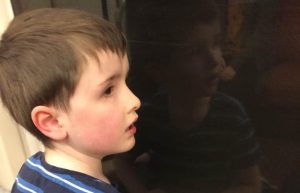
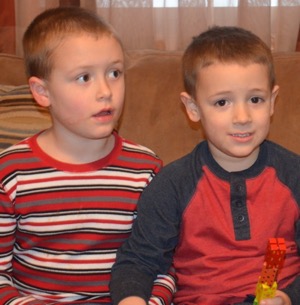
 As another year draws to a close, I realize that the little piece of my heart that had once seemed forever broken is growing bigger and bigger with each passing year. I have heard that grief and pain get better as time passes, but they don’t. A person’s way of coping gets better, but the pain is forever there. The same is true for a family dealing with a child who has a severe disability. The pain from the daily struggles is always there—we just find better ways to cope with it as time goes on.
As another year draws to a close, I realize that the little piece of my heart that had once seemed forever broken is growing bigger and bigger with each passing year. I have heard that grief and pain get better as time passes, but they don’t. A person’s way of coping gets better, but the pain is forever there. The same is true for a family dealing with a child who has a severe disability. The pain from the daily struggles is always there—we just find better ways to cope with it as time goes on.
 Arthur was a single middle-aged man who had lived alone since the death of his mother. His greatest love in life was trains and he knew absolutely everything about them. If you ever bumped into Arthur, he would start talking about trains whether you wanted to or not.
Arthur was a single middle-aged man who had lived alone since the death of his mother. His greatest love in life was trains and he knew absolutely everything about them. If you ever bumped into Arthur, he would start talking about trains whether you wanted to or not.
 My heart is breaking, aching, falling into pieces, cascading downward, landing softly, interspersing with yours. This intricately designed puzzle devoid of instructions, each interlocking piece lavishly stained in colors and patterns, facing upward, beckoning for assembly—it’s complicated. I struggle to place the oddly shaped pieces in harmony with the others; there’s no clear picture of the end mosaic, completely lost in its complexity, vulnerable, apprehensive, feeling inadequate and incapable. Countless pieces isolated, waiting to be orchestrated into a recognizable portrait, unobscured.
My heart is breaking, aching, falling into pieces, cascading downward, landing softly, interspersing with yours. This intricately designed puzzle devoid of instructions, each interlocking piece lavishly stained in colors and patterns, facing upward, beckoning for assembly—it’s complicated. I struggle to place the oddly shaped pieces in harmony with the others; there’s no clear picture of the end mosaic, completely lost in its complexity, vulnerable, apprehensive, feeling inadequate and incapable. Countless pieces isolated, waiting to be orchestrated into a recognizable portrait, unobscured.